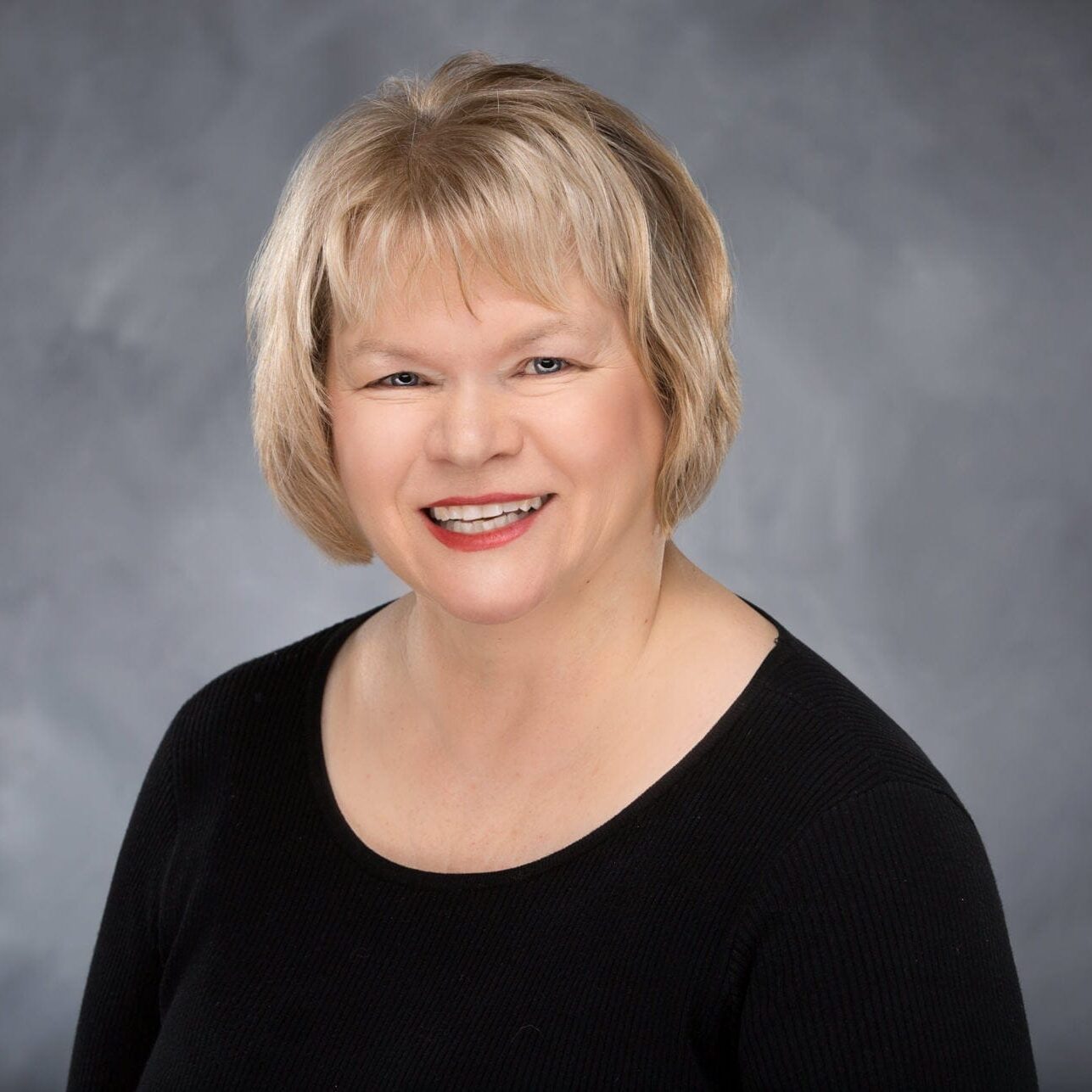9 doable action steps to plan for the unexpected
Why should you plan for the unexpected?
When you are in the middle of a job search, it is hard to read advice about what you should have done differently.
But since self-employment often parallels the way a job seeker feels, I understand the struggles you may be going through.
Can I have a “Do-Over”?
All of us would love to have a “do-over” to start things over again and get it right. 2010 has felt a little like that for me. Though I owned Design Resumes for a long time, I rethought everything I did this year.
The transition of operating Design Resumes as a full time business is happening now. Instead of managing operations of more than one non-profit, I changed to a full focus on Design Resumes when I resigned from Wausau Whitewater in December 2009.
I started out with some investments into the business. The office got a face-lift.
Psychologically, working in a fresh area helps me but since I see clients here, it also helps to improve the atmosphere. My office has a fantastic view overlooking the city but it is nice to have great lighting and the rest of the remodel too.
I invested in more education. Though I have always had a virtual connection to the career industry, participating in Career Thought Leaders and Career Management Alliance conferences this year created in-person connections that solidified many growing online relationships and also provided more targeted education on cutting edge career industry issues. In October, I head out to San Diego for the Career Directors International Conference where I will network with more colleagues and gain valuable insight on more career industry hot topics.
I invested in me in many different ways this year to make myself an asset for my clients and to solidify network connections with colleagues and business professionals throughout the world.
Why plan for the unexpected?
In addition to my planned investments into the business, there have been some surprises this year. I was sick for awhile and it took doctors to resolve the matter.
My husband had long-procrastinated surgery, resulting in large bills that surprised me even when I had an idea of what it could cost.
My son was hit by an uninsured and unlicensed driver. Though the car he was driving was fully insured and in mint condition, it was a 1992 and the insurance payment will put him on the path of finding a new vehicle again.
I just gifted him that car, thinking it was better for him to have it because he drives more. I thought I would get another later.
Now he needs to purchase a new vehicle. I need to think through when it is the right time for me to look for one for me. My older son needed help with another issue and took my cash reserves.
What are some steps you can take to plan for the unexpected?
Track your expenditures.
If you know exactly what you are spending, you will more easily be able to determine if you have some things you can cut. For a period of time, write down everything you spend.
Develop a budget.
I have an extensive spreadsheet that I have used since 1996 but I also have budgets in the QuickBooks files that I keep for my company and my personal accounts. Projecting forward helps you forecast upcoming expenses.
Pay down debt.
As hard as it may be to keep your expenses under control, you need to focus on decreasing debt even when income isn’t coming in.
Set up and contribute to a savings plan.
I used to say that I couldn’t save. Then I started to listen to a good friend who advised me to put money in savings even when I still am struggling to pay down debt.
It helps for the unexpected. Even putting $10 a month in savings leaves a little in reserves for the hard times. His formula and one advised by many financial counselors is 6 to 8 months in a reserve savings account that is your emergency fund.
This seems astronomical to me since I have both business and household expenses but it is a goal that I hope to keep building toward.
Decide what to cut out.
Looking critically at your expenses may open doors to help you see things that you could do differently. My view of many expenses is different now.
Build your network.
It is easy to think you can’t do anything but by doing the things above and finding creative ways to connect with others, you can keep enhancing your network. A cup of coffee, a phone chat, a business meeting, or Chamber of Commerce event keeps you connected.
Don’t feel sorry for yourself.
When times are hardest, you tend to isolate yourself and perhaps withdraw and make alcohol or drugs a substitute for moving forward on goals. I have watched others go this route and fall into a depression. Clinical depression is nothing to play with and it does need an expert. But feeling sorry for yourself is defeating and makes everything harder.
Challenge yourself and reward yourself.
Along with not feeling sorry for yourself, build in some rewards. Again, take a different look at things. Rewards can be very tiny and cost little or nothing. But you need rewards more when things are tough. Listening to music. A free concert. Time for yourself. A bubble bath. Your favorite past time. Fishing. Give yourself a reward.
Look for new sources of income.
You may not want to start your own business and this might not be the time but is there something you can do that will create income. Do you have a special talent that people would pay for? Could you help someone else who needs help but not a full time employee or service?
What other solutions can you find to help plan for the unexpected?
After I published this, I read another great post on the same topic by Jason Alba entitled, How to Prepare for a Layoff. He gives you more advice on planning for the unexpected there.
A client and I recently discussed the “insurance resume.” It goes with planning for the unexpected. You don’t expect to lose your job but if you did, your resume (and LinkedIn) are ready. Do you need an insurance resume? Learn More.

17 Comments
Resume Design and Job Seeking Tips
Here are Design Resumes' latest articles on job search, resume design, resume writing, and Linkedin optimization articles I've written.
Julie Walraven
Professional Resume Writer
Here are ways I can help you land your dream job.
You may be halfway across the country or the world. When you work with me, we share coffee, laughs, and concerns. This turns the scary job search into creative, consultative writing and learning sessions.






Our background in whitewater paddlesports doesn’t hurt either when it comes to planning for the unexpected. Every paddler has a “Plan A” when navigating rapids but every paddler has to shift to “Plan B” at some point as whitewater is changing medium (as is life.) The key is smooth transitions in shifting to Plan B (and C and D and E, etc.) Great thoughts, Julie – thanks for sharing!
Thanks, Joe! You can relate as you have made dramatic changes in your last few years in life in addition to your success in the whitewater world. Love hearing how your daughter is growing in her paddling!
Great advice – in fact, I can think of a few government agencies that have missed these truths.
I love Joe’s comment about “plan b” as well. While I was employed, I always kept a Plan “b” book. It was a great place to write down ideas that applied to my current employer and even a few that didn’t. I’ve been out of work now for two months and that book has been an invaluable source. Even these months later, I’m still working through that “plan b” book. Having those ideas handy has given me hope and a direction to run in.
Thank you, Michael! Hope is so important no matter where you are in life. Keep using your plan b book and get creative! I know you can… your two months are short in this economy so keep strategizing and you’ll be working in the right direction!
Joe is one of my favorite inspirations and I still give him credit for turning me into a blogger. I think he thought at the time that I would be pushing Wausau Whitewater forward with that one and this one would be the sideline… but he was also willing to listen when I was making decisions that took me in this direction.
Great advice. I love how it’s broken into short but powerful action steps. And as always, you tie real life in there. The post weaves in your modeling — very inspirational! So often my clients are obviously stressed in their job search. With coaching, one of the top worries to frequently surface is not being prepared for the “freight train” that hit them. Thanks for a very helpful post!
I love having the coaches come comment because your insight is so great! You are totally right that “freight train” effect is often the top concern and it clouds the ability to do much else. Thanks, Barb and I love your new shiny Gravatar!
Thanks, Julie! Much better than the former mystery person:-)
Thanks, Julie. This is a courageous and timely post for so many who are thinking about do-overs and next steps.
I had a call this morning from someone who had just received a totally unexpected pink slip. She was just nicely settled in with her Plan A, and Pow!
We’ll be talking about a Plan B soon.
Even though it may seem that Plan A for life and work is difficult enough to choose and follow, Joe is absolutely right. We definitely need a Plan B, too, or we are tossed with the current onto some pretty big rocks.
One thing I’ve discovered about do-overs is that life hardly ever hands us second chances with exactly the same circumstances. What it does is put the same opportunity in front of us in another form. It’s up to us to recognize it as a do-over, be grateful for the chance, and to follow through as if our happiness depends on it. Because it usually does.
P.S. So glad to hear you’ll be in San Diego in October, too!
Such wisdom, Jeri! With #HireFriday always on my mind, I find that so many people are struggling so hard now. Some have been out of work for a full year and are terrified. It is hard the first month but when it drags on and you are not finding options and you may have avoiding the professional help that you need, you really need to have a Plan B.
What a great post, Julie.
Like Barb, I love how it’s broken down into powerful action steps. One of the things I’m advising my clients to do right now is to think unconventionally during these tough times. Regular wisdom says that, if you lose a job, or want to change what you do, you go in search of another. But the whole job and work “thing” is shifting massively and our self-concept is having to make radical adaptations alongside. So, while I think it’s wise to think best picture and long term, I also think short term pragmatism is called for too. Your steps around getting on top of your finances and doing self-employed stuff meantime talk to this.
Thanks Julie!
So right, Christine and you are the master in this. If anyone is wanting to look at work differently, Christine is your source. Her vast experience in the top echelons of corporate living and changing her own world speak volumes to anyone thinking about a change.
Hi Julie,
Another great post, as usual! What a helpful and “doable” list (you said it best; I can’t think of another word that would better describe the essence of these tips :-). And you’re exactly right that the tips apply to both career seekers and the self-employed.
The way you’ve broken every tip down and included examples or specific actions that people can relate to makes this an easy-to-follow guide. It can be started (or restarted) any time. This adds even more to its value, in my opinion.
By the way, I’d say Teddy is also an important reason for the office renovation (after all, he deserves a beautiful view as he hangs out to enrich your day, too!).
Thanks for always adding value to career conversations!!
I can’t take credit for doable since Jacqui retitled it (sort of) when she retweeted it this morning and I remembered that posts referencing numbers as Brent Peterson’s post refers to in his 7 tips for sharing articles are more effective.
But thank you for the kudos on the post itself. I think I write this kind of post for me to help motivate me to follow my plan.
Thank you sis for posting such practical information.
Glad to, if it helps!
Great Points, Julie, and they bear repeating, current changes were partly expected, and I am still working to improve my record keeping habits. Make it a great Sunday! Jim.
Thanks, Jim, I wish you blessings on your new venture. I suspect that there are a few people who have great talent in that area but otherwise I think many of us need to improve our recordkeeping and information processing habits. Speaking as someone who has 900+ in her inbox right now…